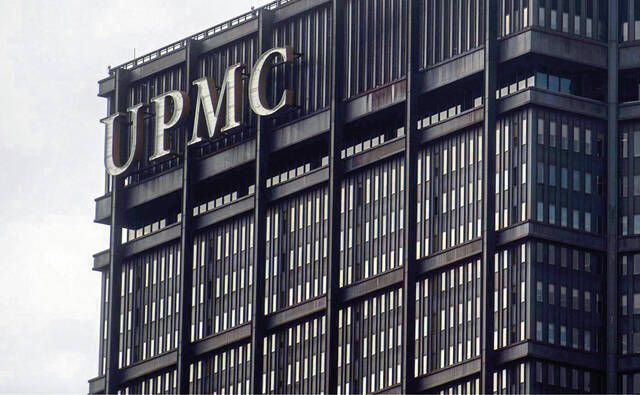Pat Garofalo: Ending health care systems' abuse of nonprofit status
A court recently ruled that the health care system Tower Health did not meet the mandated requirements to receive tax exemptions on four of its properties in Pennsylvania, in part because it was too focused on profit despite its status as a nonprofit institution. “This decision is validation that our concerns with Tower Health were appropriate. They did not meet the measure of the law and should be paying their fair share of taxes and I look forward to them paying up,” said one town superintendent after the ruling.
More municipalities, school districts and other taxing authorities are challenging health care systems for abusing their tax-exempt status. For instance, Pittsburgh Mayor Ed Gainey recently announced an even more comprehensive review of all tax-exempt property in the city, a parcel-by-parcel investigation aimed at seeing if organizations receiving exemptions actually deserve them under Pennsylvania’s constitution. Such a step is sorely needed: Nearly 34% of the property across Pittsburgh is tax-exempt, costing the city at least $34.5 million annually. Many of the city’s most recognizable names are on the list of those receiving exemptions, including its major universities and hospitals.
At the top of that list is UPMC, with about $14 million in property tax exemptions.
Gainey’s thorough review will take time, but in addition to providing revenue to the city that it is actually owed, it is a long overdue effort to rein in UPMC’s power over the health care system in Western Pennsylvania. There’s a direct line between the hospital’s ability to amass financial power and resources and engage in a slew of mergers and acquisitions in order to build up market share, and then use its ensuing dominance to prevent workers from organizing, creating a health care workforce crisis in the region and ultimately undermining care for patients.
Overall, UPMC receives about $50 million annually just in property tax benefits from local governments. But as two earlier lawsuits detailed, UPMC has allegedly failed to abide by the conditions necessary for receiving all that largesse, which require it to serve a purely public purpose, not make a private profit and donate a significant portion of its services.
UPMC is one of the worst performers in Pennsylvania and nationally in terms of charitable spending in a 2022 survey, which also ranked UPMC fifth worst in the nation in terms of its “fair share deficit,” i.e., the amount it spends on charitable giving versus the value of its various tax exemptions.
In the last decade, UPMC has grown into a network of 40 hospitals with 60% of all licensed hospital beds in the area, an insurance network that covers more than 4 million people and an employer of some 95,000 workers, making it the largest non-governmental employer in the state. In 2016 and 2017 alone, UPMC acquired 15 hospitals in Pennsylvania.
That consolidation gives the hospital system immense power to box out competitors via anti-competitive tactics — like using its insurance network to drive business to its own facilities and away from others, as it attempted to do in its fight with Highmark. UPMC also has significant power over the labor market, enabling it to drive down wages and working conditions, because workers simply have nowhere else to go if they want to remain in their field.
In a report last year, the Biden Treasury Department found that this sort of employer power is lowering wages by about 20% across the economy and by more in select industries. And there’s ample evidence of corporations that receive financial preferences using the money they save not to help workers of local communities, but to further entrench themselves politically through lobbying and campaign contributions.
Policymakers serious about breaking up corporate power should enthusiastically back examining, reining in and perhaps even ultimately undoing nonprofit tax exemptions. But that’s just a start. Other crucial steps include bolstering state antitrust law to enforce against anti-competitive tactics in consumer and labor markets, supporting worker efforts to unionize, reforming hospital pricing powers and banning the tactics firms like UPMC use to trap workers in their jobs.
With a full agenda focused on reducing corporate power, policymakers can end the health care workforce crisis in and around Pittsburgh, build a health care system that works for patients and workers instead of for corporate executives, and ensure that the entire region can benefit from shared prosperity fueled by public dollars.
Pat Garofalo is director of state and local policy at the American Economic Liberties Project and the author of “The Billionaire Boondoggle: How Our Politicians Let Corporations and Bigwigs Steal Our Money and Jobs.”
Remove the ads from your TribLIVE reading experience but still support the journalists who create the content with TribLIVE Ad-Free.

